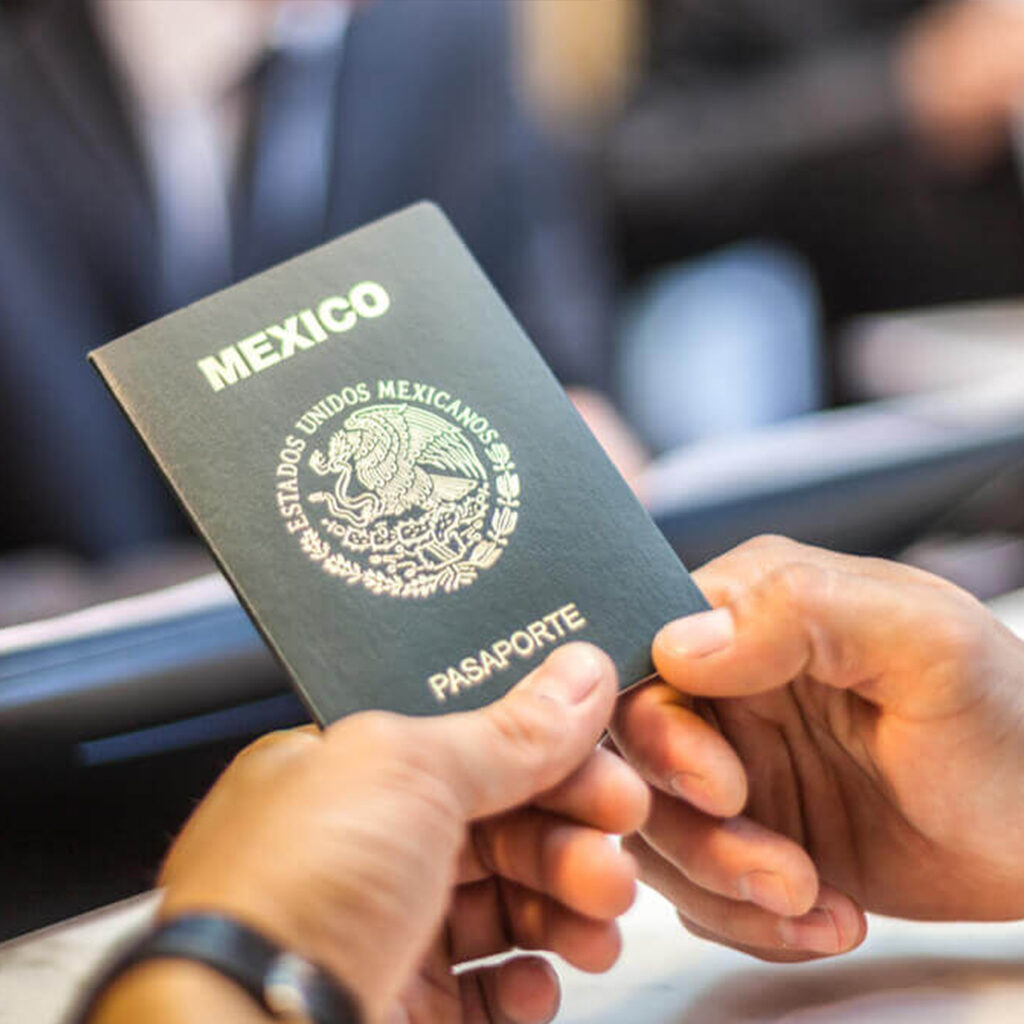DUAL CITIZENSHIP
Dual citizenship also known as dual nationality, is a person’s citizenship status, in which a person is concurrently regarded as a citizen of two countries. A dual national may possess dual citizenship by automatically acquiring citizenship of another country, such as by being born in a foreign country to dual national parents, or by naturalizing in a foreign country. Alternatively, dual nationality could occur as the result of an individual’s choice.
For example, an individual may obtain foreign citizenship and thereafter maintain dual nationality. U.S.-Mexico dual nationals are subject to the laws of both countries: they must enter and exit Mexico using their Mexican passport, and they must comply with Mexican laws, even if they reside outside of Mexico; likewise, they must enter and exit the United States using their U.S. passport and must follow U.S. laws even when they are residing outside the United States. If you have questions about your particular dual nationality status or situation, we suggest that you consult with an attorney specializing in immigration law.

There are several pros and cons to dual nationality. On the plus side, dual citizens enjoy the benefits of being able to live and work in two countries. They also have the right to vote in both countries and can travel freely between the two countries. However, there are also some drawbacks. Dual citizens may be required to pay taxes in both countries, and may be subject to military service in both countries.
Additionally, dual citizens may have difficulty accessing government benefits in one country if they are not residents of that country. The decision of whether to hold dual nationality is a personal one that must be weighed carefully. There are advantages and disadvantages to consider, and each person’s situation is unique. Ultimately, it is up to each individual to decide whether dual nationality is right for them.
A U.S. citizen may naturalize in a foreign state without any risk to his or her U.S. citizenship. However, persons who acquire a foreign nationality after age 18 by applying for it may relinquish their U.S. nationality if they wish to do so. In order to relinquish US nationality by virtue of dual citizenship of another state, the law requires that the person must have both citizenship voluntarily and with the intention to relinquish US nationality.
The laws on dual citizenship vary from country to country, and it is important to consult with an experienced immigration lawyer before making the decision to renounce your US citizenship. At LawInCabo, our dual-licensed attorneys can help you understand the complexities of dual citizenship and advise you on the best course of action for your particular situation.
The process of naturalization in Mexico is managed by the Secretaría de Relaciones Exteriores, or SRE. Dual citizenship is allowed in Mexico, so those who naturalize may retain their original citizenship if their home country also allows dual citizenship. There are several methods of naturalizing in Mexico, and generally Mexican nationality can be acquired by meeting certain residency, cultural integration, or marriage requirements.
Please contact SRE’s main office for more information on the application procedure. Dual citizenship can be a great opportunity for those who want to live and work in Mexico, as it allows them to take advantage of the benefits of both countries. For example, dual citizens may be able to vote in Mexican elections and own property in Mexico. Dual citizens may also be able to travel freely between the two countries and enjoy the best of both cultures.
However, there are some important things to keep in mind when considering dual citizenship. For example, it is important to be aware of the taxes you may owe in both countries and to make sure you comply with the immigration laws of both countries. If you are interested in dual citizenship, please contact a law firm specializing in dual citizenship for more information.
Persons may have dual nationality by automatic operation of different laws rather than by choice. For example, a child born in a foreign country to U.S. national parents may be both a U.S. national and a national of the country of birth. Or, an individual having one nationality at birth may naturalize at a later date in another country and become a dual national. Dual nationals owe allegiance to both the United States and the foreign country.
They are required to obey the laws of both countries, and either country has the right to enforce its laws. It is important to note the problems attendant to dual nationality. Claims of other countries upon U.S. dual-nationals often place them in situations where their obligations to one country are in conflict with the laws of the other. In addition, their dual nationality may hamper efforts of the U.S. Government to provide consular protection to them when they are abroad, especially when they are in the country of their second nationality.
Dual citizenship is the recognition that a person can be a member of more than one country. In some cases, dual citizenship is automatic, as when a person is born in one country but has parents who are citizens of another. In other cases, it must be obtained through naturalization.
Mexico and the United States both recognize dual citizenship, and there are many benefits to having dual citizenship in these two countries. For example, dual citizens can live and work in either country without needing a visa, and they can also own property in both countries. Dual citizens also have the right to vote in both countries and to receive consular protection from either country while traveling overseas.
The dual citizenship process can be complex, but it is worth it for many people who want to enjoy the benefits of being a citizen of both Mexico and the United States. If you are interested in dual citizenship, you should consult with a law firm that specializes in this area.